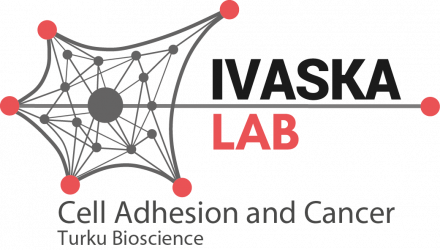A feed-forward loop between SorLA and HER3 determines heregulin response and neratinib resistance by Hussein Al-Akhrass et al.
Oncogene. 2021 Feb;40(7):1300-1317. doi: 10.1038/s41388-020-01604-5. Epub 2021 Jan 8.
ABSTRACT
Current evidence indicates that resistance to the tyrosine kinase-type cell surface receptor (HER2)-targeted therapies is frequently associated with HER3 and active signaling via HER2-HER3 dimers, particularly in the context of breast cancer. Thus, understanding the response to HER2-HER3 signaling and the regulation of the dimer is essential to decipher therapy relapse mechanisms. Here, we investigate a bidirectional relationship between HER2-HER3 signaling and a type-1 transmembrane sorting receptor, sortilin-related receptor (SorLA; SORL1). We demonstrate that heregulin-mediated signaling supports SorLA transcription downstream of the mitogen-activated protein kinase pathway. In addition, we demonstrate that SorLA interacts directly with HER3, forming a trimeric complex with HER2 and HER3 to attenuate lysosomal degradation of the dimer in a Ras-related protein Rab4-dependent manner. In line with a role for SorLA in supporting the stability of the HER2 and HER3 receptors, loss of SorLA compromised heregulin-induced cell proliferation and sensitized metastatic anti-HER2 therapy-resistant breast cancer cells to neratinib in cancer spheroids in vitro and in vivo in a zebrafish brain xenograft model.
PMID:33420373 | PMC:PMC7892347 | DOI:10.1038/s41388-020-01604-5
